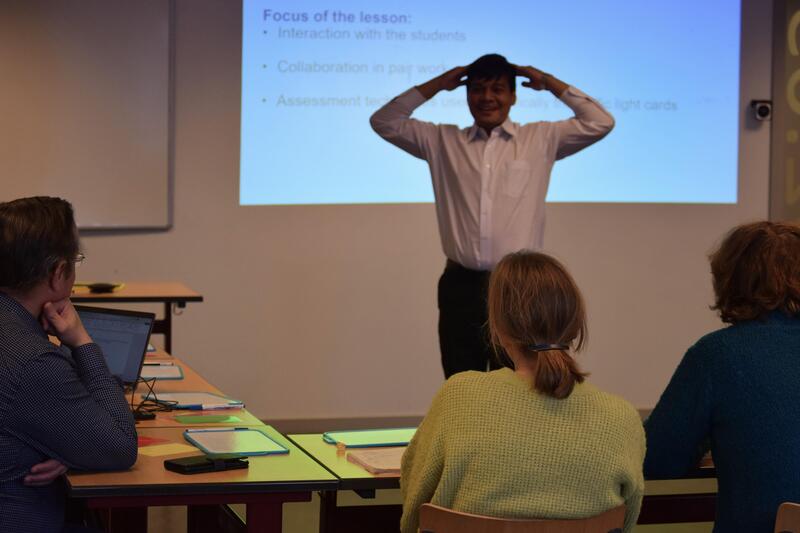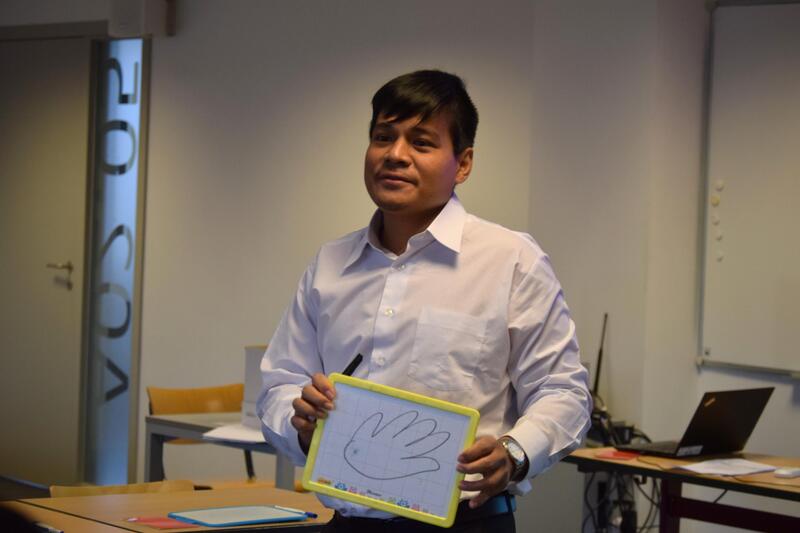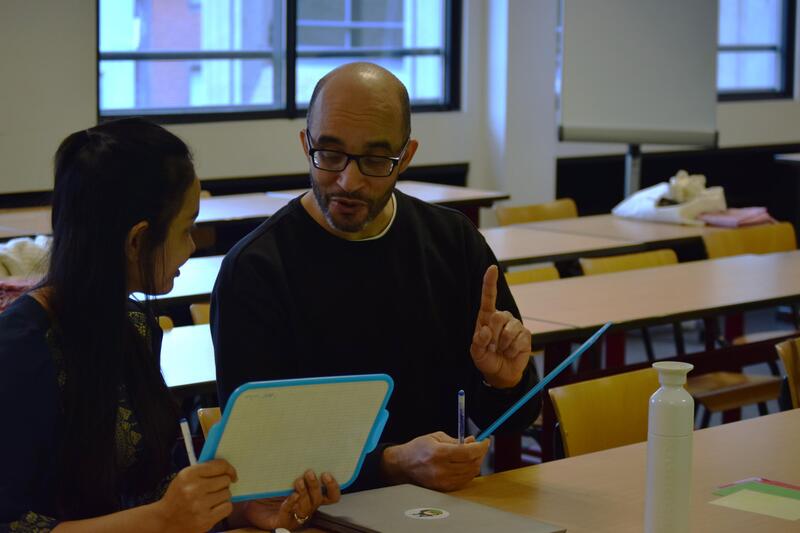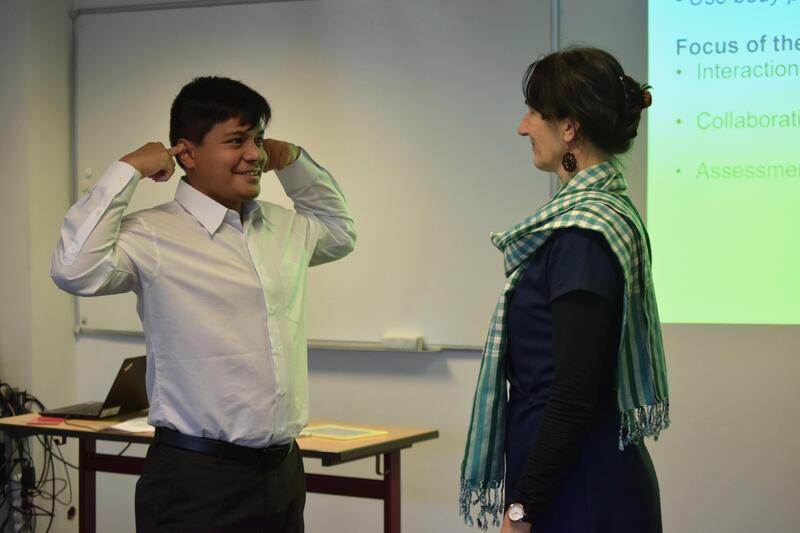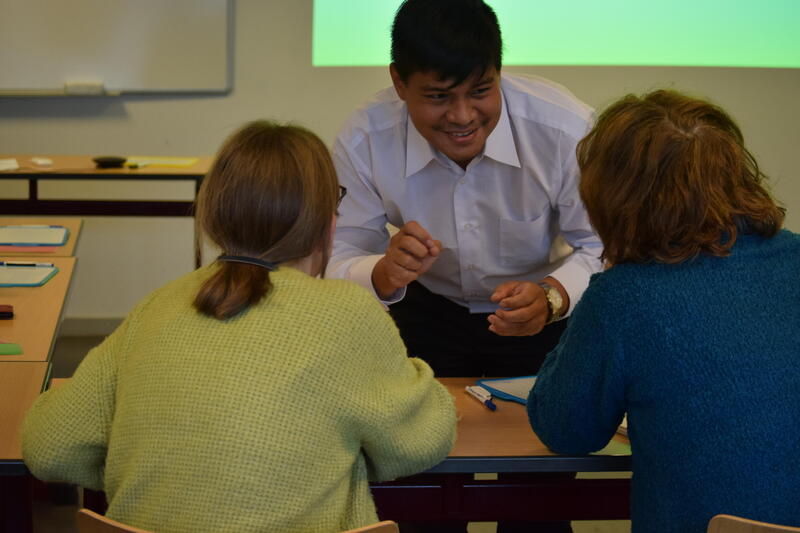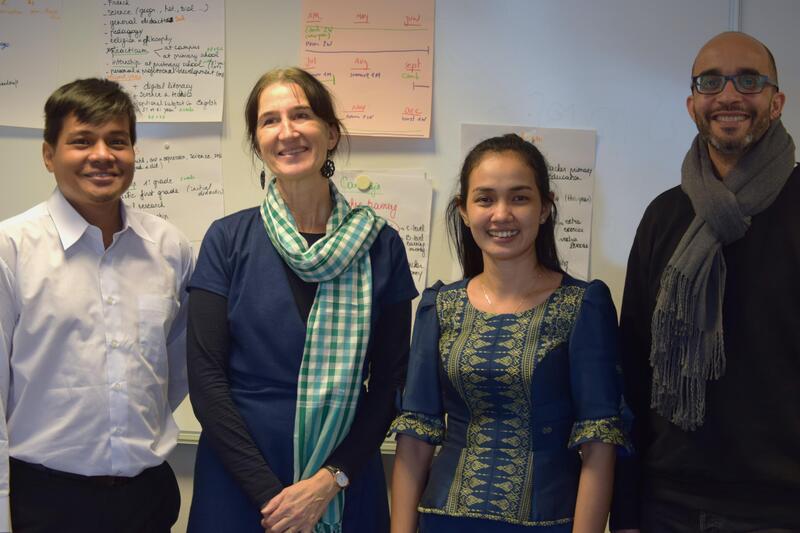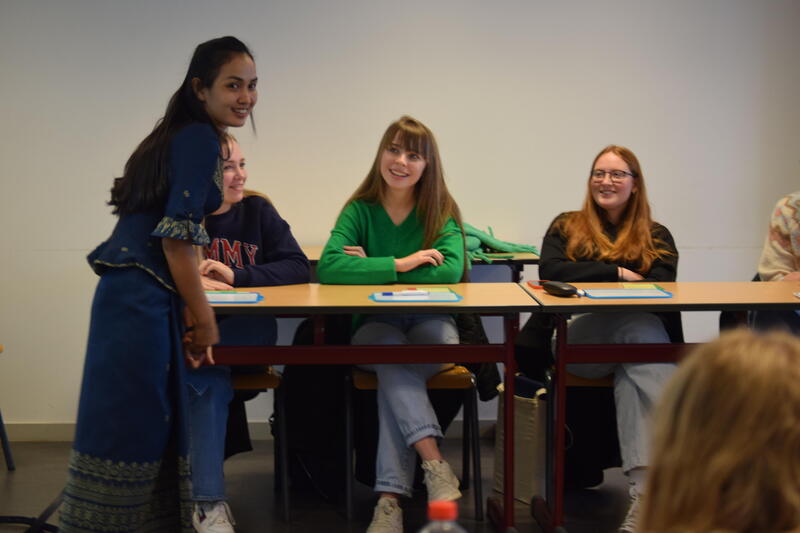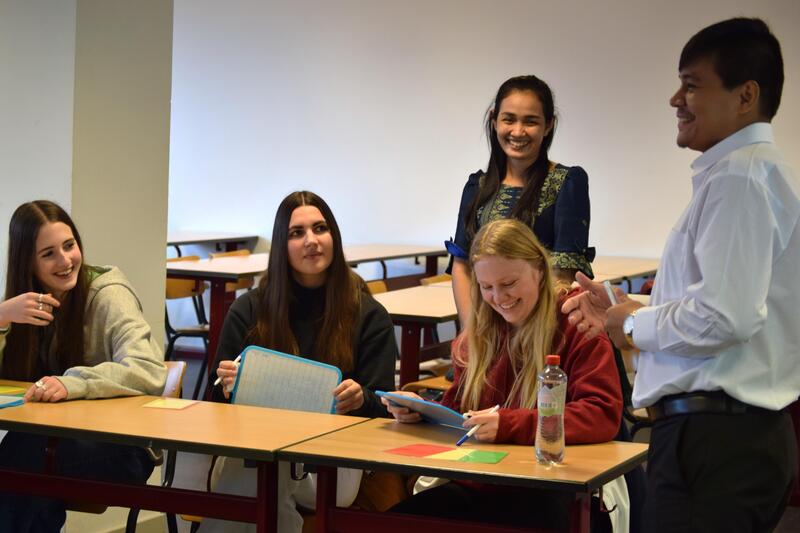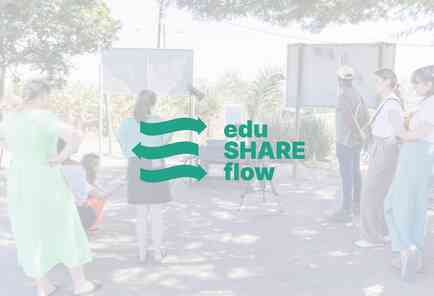A lesson from Cambodia
Sharing lessons learnt from VVOB’s SMILE project - which focuses on strengthening early grade maths through inclusive, level-appropriate education - Chinda and Phannha introduced the Belgian teachers and students to the ways they’re teaching mathematics to their student teachers in Cambodia.
This inspiring workshop led the student teachers to understand some common ground with the way things are done in primary schools in both countries. Every country has its own set of education challenges, but some challenges are global, and therefore, there is a need to share experiences and learn from and collaborate with other regions to find creative solutions.
COIL: Collaborative online international learning
The aim of the Collaborative Online International Learning component is to enable student-teachers to collaborate, exchange and learn from each other online. In this way, they acquire international and intercultural competences through internationalisation at home, broaden their horizons and allow themselves to be inspired by a different context.
“We want students to develop a ‘global mind’. Every student should have the opportunity to learn through international exchange. And you don't always have to take a plane for that,” says Philip O'Neill, International Coordinator of Expertise Network Education at Artevelde University College.
The goal is for Flemish teacher training institutes and pedagogical guidance services to exchange knowledge, experiences, and good practices with their peers and use these for their professional development.
By promoting a critical examination of education systems, sharing non-European educational practices, and broadening perspectives through international experiences, the eNSPIRED project can contribute to the ongoing process of innovating education systems.
Speaking about the exchange, Chinda said the workshop and dialogue which followed allowed for cross-country collaboration and reflection beneficial to all the participants: “this programme helps them to broaden their horizons and understand the global education context better.”
